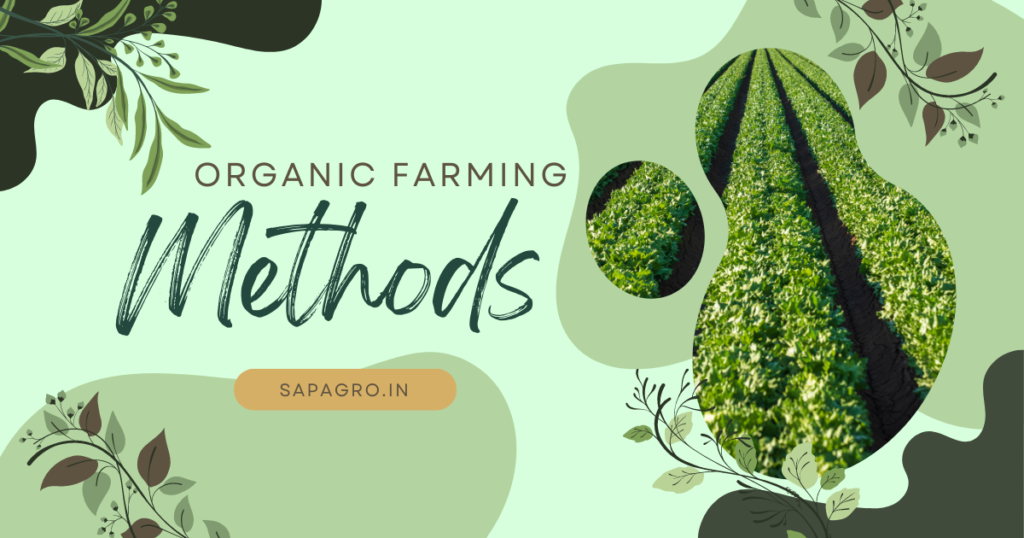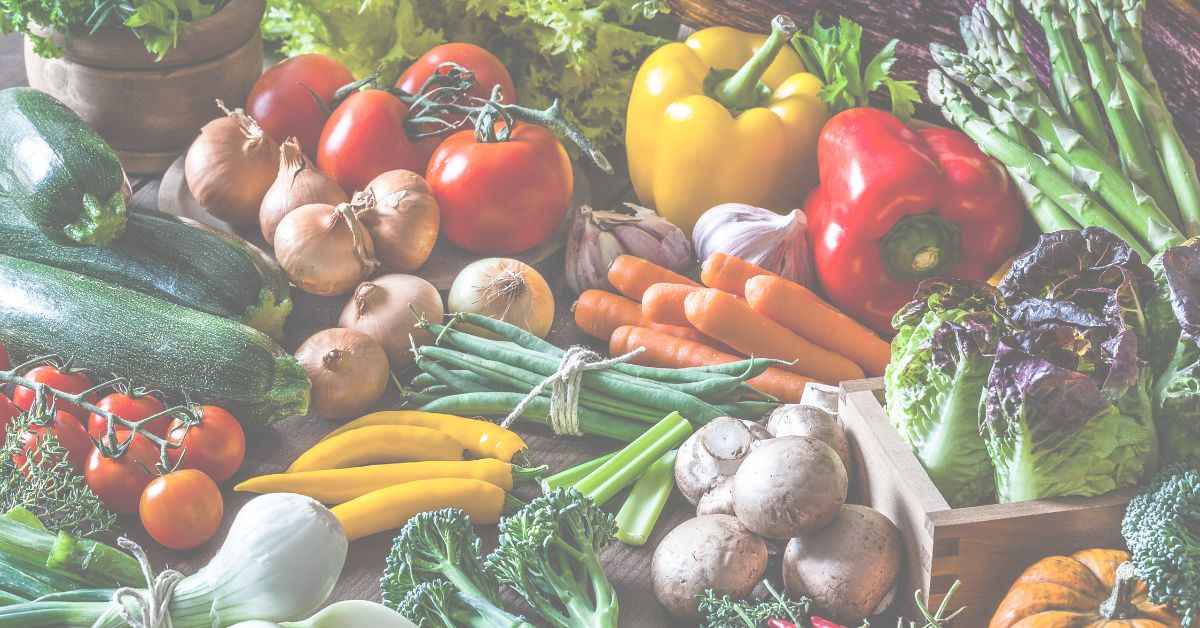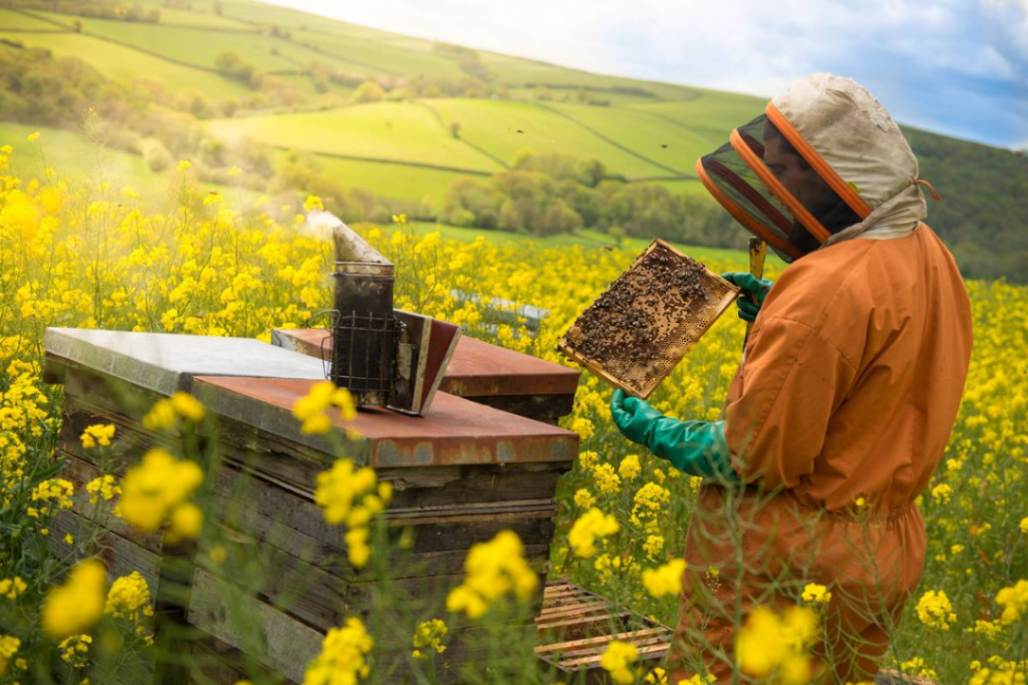
Introduction:
In recent years, there has been a growing interest in organic farming as people become more aware of the impact of conventional agriculture on the environment and human health. Sustainable farming is a holistic approach that emphasizes sustainable practices, biodiversity conservation, and the use of natural inputs. In this blog post, we will explore in detail the practices and methods of modern organic farming, delve into the benefits it offers, and examine its advantages for the environment, human health, and long-term sustainability.
Soil Management
Soil management is at the core of organic farming practices. Organic farmers recognize that healthy soil is the foundation for productive and sustainable agriculture. They focus on enhancing and maintaining soil fertility through various techniques. Instead of relying on synthetic fertilizers, organic farmers use natural sources such as compost, animal manure, and cover crops. These organic inputs improve soil structure, increase water-holding capacity, and promote beneficial microbial activity. By nurturing the soil, organic farmers create a nutrient-rich environment that supports the growth of healthy crops.
Pest and Disease Control
Sustainable farming takes a proactive approach to pest and disease control, using Pest management activities.This involves a combination of preventive measures and targeted interventions to manage pests and diseases effectively. Organic farmers focus on creating a balanced ecosystem that minimizes pest pressure naturally. They employ strategies such as crop rotation, intercropping, and companion planting to disrupt pest lifecycles and promote biodiversity. Additionally, organic farmers encourage beneficial insects, birds, and other natural predators to control pests, reducing the need for synthetic pesticides.
Biodiversity Conservation in Organic Farming
Biodiversity conservation is a fundamental principle of organic farming. Organic farmers understand that diverse ecosystems are more resilient and sustainable. They actively promote biodiversity on their farms by creating habitats for beneficial organisms, including insects, birds, and soil microorganisms. By preserving natural areas, planting native species, and implementing diverse crop rotations, organic farmers enhance pollination, pest control, and nutrient cycling. Biodiversity conservation not only benefits the farm but also contributes to the overall health of the surrounding environment.
Crop Rotation and Diversification
Crop rotation is a key practice in organic farming that involves the sequential planting of different crops on the same piece of land over time. This technique helps break pest and disease cycles, reduces soil erosion, and improves soil fertility. Organic farmers carefully plan crop rotations, considering the nutrient needs and growth characteristics of each crop. By alternating crops with different nutrient requirements, organic farmers maintain soil health and minimize the buildup of pests and diseases. Crop diversification, which involves growing a variety of crops together, further enhances the resilience of the agroecosystem and reduces the risk of crop failure due to specific pests or adverse weather conditions.
Weed Management
Weed control is a significant challenge in organic farming since synthetic herbicides are not used. Organic farmers employ various methods to manage weeds, including mechanical cultivation, hand weeding, mulching, and the use of cover crops. These practices help suppress weed growth, maintain soil moisture, and improve soil structure. Organic farmers view weeds as indicators of underlying soil conditions and strive to address the root causes rather than relying on chemical treatments.
Advantages of Organic Farming
Organic farming offers numerous benefits, both for the environment and for human health:
Environmental Benefits:
Reduced chemical inputs: Organic farming avoids the use of synthetic fertilizers, pesticides, and herbicides, minimizing chemical runoff into water sources and reducing the risk of pollution.
Soil conservation: Organic farming practices, such as crop rotation and the use of cover crops, help prevent soil erosion and maintain soil structure, preserving its fertility for future generations.
Biodiversity preservation: Organic farms prioritize the conservation of biodiversity, providing habitats for beneficial insects, birds, and other wildlife. This helps maintain a balanced ecosystem and promotes natural pest control.
Water conservation: Organic farming practices, such as mulching and efficient irrigation methods, help conserve water by reducing evaporation and runoff.
Health Benefits:
Nutrient-rich produce: Organic crops are often found to have higher levels of certain nutrients, including vitamins, minerals, and antioxidants, compared to conventionally grown crops.
Reduced pesticide exposure: Organic farming avoids the use of synthetic pesticides, reducing the potential health risks associated with pesticide residues in food.
Antibiotic-free animal products: Organic livestock farming prohibits the routine use of antibiotics and promotes healthier and more natural animal husbandry practices.
Long-term Sustainability:
Soil fertility and resilience: By prioritizing soil health, organic farming promotes long-term sustainability by maintaining and enhancing the fertility of agricultural lands.
Climate change mitigation: Organic farming practices, such as carbon sequestration in soils and reduced energy consumption, contribute to mitigating climate change by reducing greenhouse gas emissions.
Support for Local Communities:
This type of farming often promotes local and regional food systems, allowing farmers to connect directly with consumers and providing economic opportunities for local communities.
Organic certification and labeling provide consumers with transparency and assurance that the food they purchase meets strict organic standards.
Conclusion:
Organic farming represents a modern concept that combines traditional wisdom with scientific knowledge to create a sustainable and environmentally friendly agricultural system. Through practices such as soil management, integrated pest management, biodiversity conservation, crop rotation, and weed management, organic farmers produce nutritious food while minimizing harm to the environment. The advantages of sustainable farming extend to the preservation of soil health, biodiversity conservation, reduced chemical inputs, and improved human health. By choosing organic products, consumers can support a healthier planet, protect their own health, and contribute to the long-term viability of our food systems.
As awareness continues to grow, organic farming is likely to play an increasingly important role in shaping the future of agriculture, paving the way for a more sustainable and resilient world.
You may also like best organic farming training in India
Feel free to contact us for any inquiry related organic farming.






